Kinds of Kindness
“Control! Now I got a lot.” — Janet Jackson
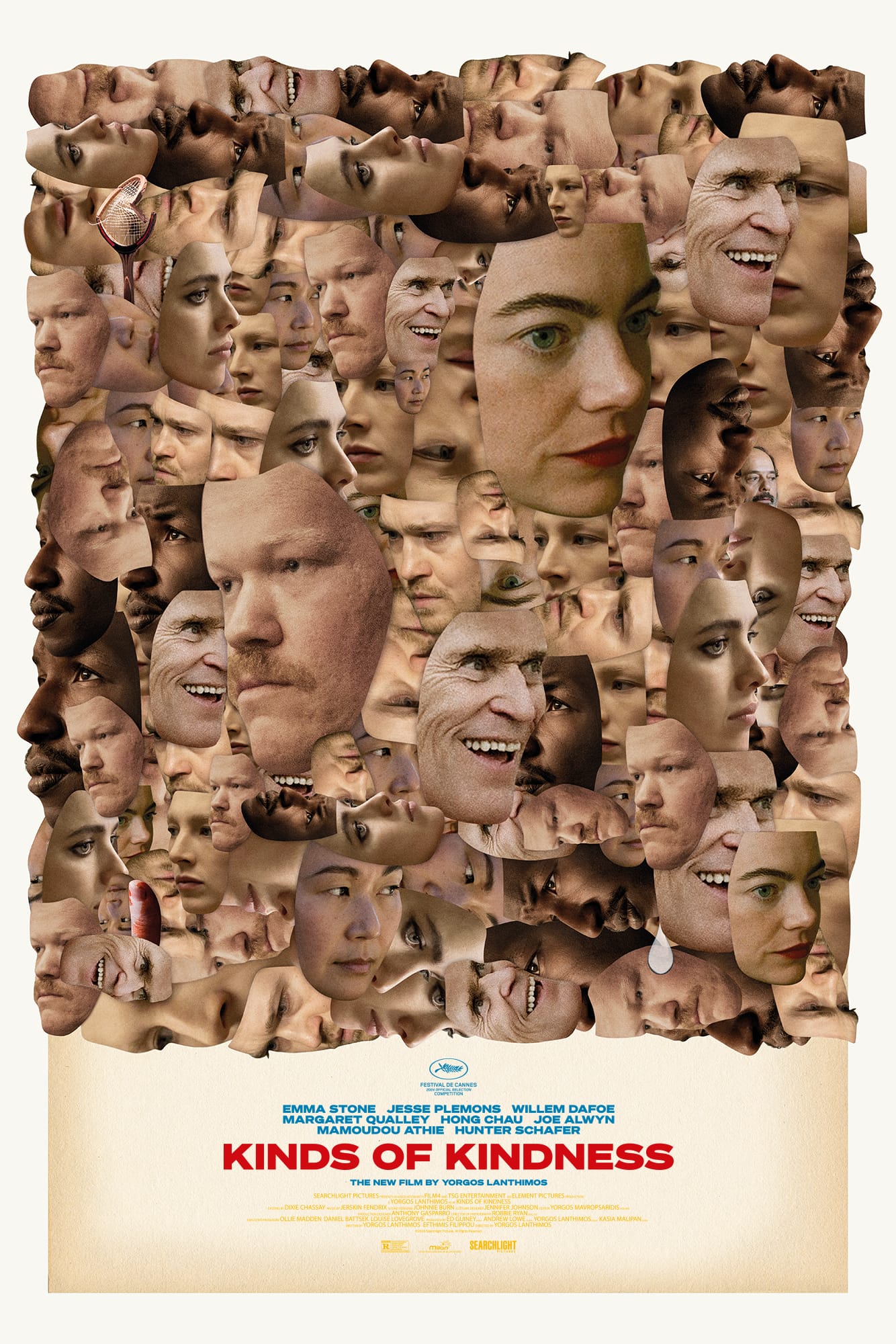
This is a film of three different and separate stories… In one, a man tries to take control of his own life. In another, a policeman suspects his wife has been replaced with a different person. In the third, a cult searches for a person of prophecy, said to have been born with a special ability.
In a year that gave us such incredible films as Barbie, Killers of the Flower Moon, Past Lives, and Oppenheimer, I did not expect to get absolutely blown away by the movie Poor Things, but I was, I absolutely was. So, after that film, as well as The Lobster, and The Favourite, I’m a fan of Yorgos Lanthimos, especially when Emma Stone shows up too, so naturally, I’m here for Kinds of Kindness.
This film is three short films. Each one is a different story, unconnected to the others. Each one features the same actors, but in different roles each time. Each story seems to be concerned with the question of control, and what happens when we lose it, as well as the banal horror of modern life, and the need for connection. Each one focuses on that feeling in life of a constant hunger, but never being able to be satisfied, as well as highlighting the unreasonable imposition of others upon our lives. Each one also seems to be about the lengths we go to, the sacrifices we’re willing to make, for the ones we love. Additionally, each one seems to be about the desire to belong. Each one is, well… weird.
But most of all... each one of these stories feels incomplete, and ultimately, that means that all of them are kind of disappointing.
I was hoping they'd be great too, but...

Margaret Qualley is in this, by the way. At this point, she has now worked with Ethan Coen, Claire Denis, Shane Black, Quentin Tarantino, and Yorgos Lanthimos. Wow, right? A veritable Who's Who of Directors. She’s really having a moment. I wonder how she got so hot so suddenly… oh, she’s Andie MacDowell's daughter. Gotcha. Understood.
Ah... Hollywood…
So, first up is “The Death of R.M.F.”
Robert Fletcher is corporate executive who follows every order from his boss, Raymond. Raymond tells Robert what to do with nearly every minute of his day, including when to eat, and when to make love to his wife. He even has Robert drug his wife, so that she will have a miscarriage, because a baby would impact Robert's work output. It’s only when Raymond orders Robert to murder a man with the initials R.M.F., a man Raymond claims is fully willing to be killed, that Robert finally says no.
That’s when the problems start for Robert.
As soon as Robert stands up for himself, his life falls apart. He loses everything. Desperate to reclaim his position and his power, he tries repeatedly to apologize to Raymond, but to no avail. Robert is a man who has never had any real control over his life, and the sudden loss of being completely controlled knocks him for a loop, and Robert soon realizes that he not only likes control, he craves it.
This is what's known as the Thanksgiving in White America Effect, I believe...
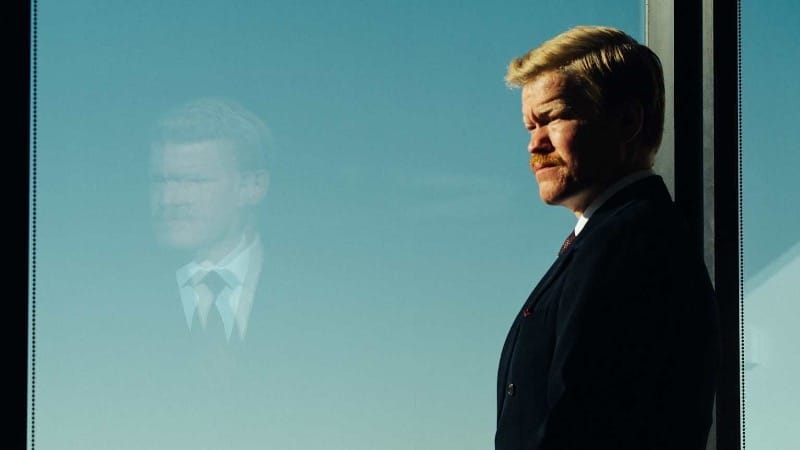
This story explores toxic power dynamics, and corrupting influences, not just between employee and employer, but with corporations, governments, religion, any larger institution, and harm they can inflict on a person’s lives, as well as a person's willingness to accept those harms if it means avoiding conflicts, as well as preserving their own comfort. Is Raymond representative of Society? Probably? Is Raymond capitalism? Maybe. Is Raymond God? I think so. But ultimately, I can't quite nail down the specifics of the metaphor. On one hand, it’s a strange, but fairly straightforward and well-done story, but on the other, like I said… it feels incomplete. I'm not sure what it's specifically trying to say, which is frustrating, because it feels like it's at least definitely trying to say something.
Next, we get “R.M.F. is flying.”
Jesse Plemmons was born to play a policeman.
He just has that look, y’know? He has the look of a small little man, a passed-over man, a guy who thinks of himself as good and reasonable, a soft man with dreams of power, a man who craves the ability to wield authority over others, which makes him the exact wrong kind of person to have it. He really exemplifies the creepiness, the heavy implication of threat, best in the hilarious film, Game Night. So, this is all very fortuitous as in this second short film, he plays a police officer too, a man who, at one point, uses his friends' concern about him and his grief over his missing wife to manipulate them into re-watching the sex tapes they once made, featuring all of them, and his missing and probably dead wife.
And the whole time, Officer Daniel seems to be utterly lost, disconnected by grief after his wife is lost at sea, and is presumed dead. But he is unwilling to accept this most likely scenario though, and his refusal to believe her to be dead is damaging him both personally and professionally. But then it turns out, she isn't dead, she has been shipwrecked on an island this whole time. Also, while she was there, she may have eaten some, if not all, of her fellow castaways, possibly. It's heavily implied, and she mostly just sidesteps that question.
Anyway, she is found and returned home. Almost immediately, Officer Daniel begins to suspect that this woman is not actually his missing wife, and that she has been replace by someone else entirely. He refuses to accept her and becomes more and more aggressive with her, urging her to prove herself to him. This leads her to do something truly horrific and bizarre in an attempt to mollify him.
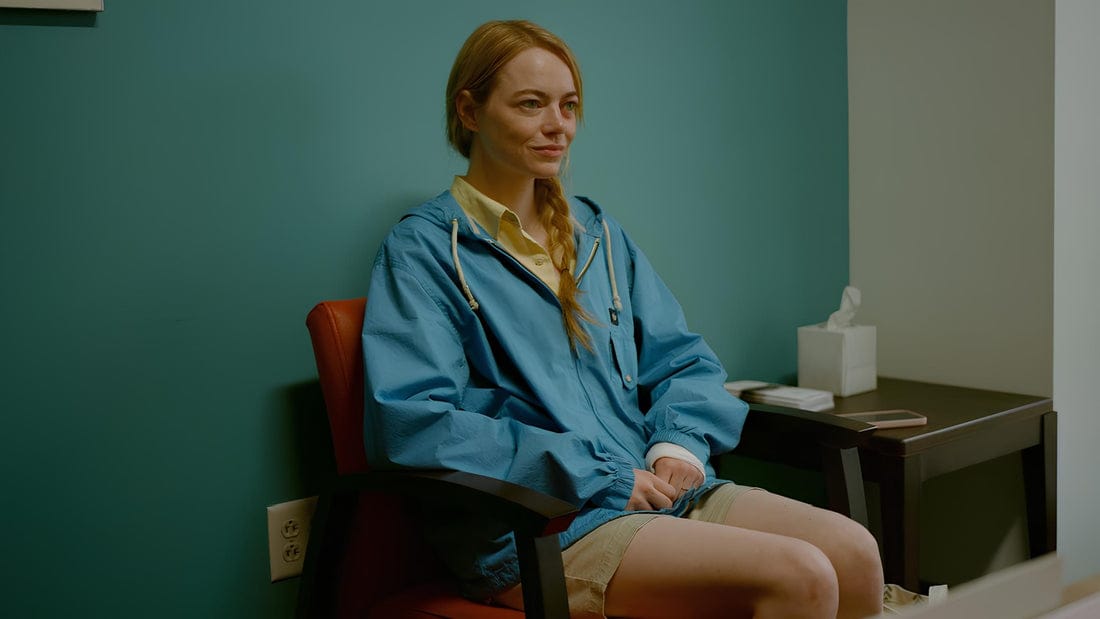
So, this story seems to be concerned with the fantasies people create about each other, and their relationships, especially long distance ones--which was obviously her when she was lost at sea, "eating" other people--all while examining how the idealized versions of a person we built up in our minds, when held up to the reality of that person, can cause conflict within the relationship--which is obviously the part that comes later, where the film has one person literally sacrificing pieces of themselves in order to fit into this skewed ideal. But in the end, again, I don’t know what the film is really trying to say about this, except for maybe that it sucks to be in such a situation, I guess, which… sure, I’ll agree with that, but is that it?
Finally, we have “R.M.F eats a Sandwich.”
The third story is probably the most narratively complete one. It’s a kind of Monkey’s Paw Twilight Zone type of thing about a sex cult run by a guru husband and wife pair called Omi and Aka. The cult has a thing about only drinking purified water that has been purified according to their own special ritual, and also to have a whole bunch of sex with each other. The cult is sending representatives out into the world in teams of two, armed with those big sports waterbottles that college kids attach to their backpacks. These teams are tasked with finding the person that Omi and Aka prophesied, a person who can resurrect the dead. One member of the team is Emily. She has left her family and no longer has any contact with them, not even her kid, but she takes every chance she can to sneak away and lurk around them, watching, and even spending time in the family house when they're not home. The other team member is Andrew, and he is a narc, jealous of Emily's status with Omi and Aka, as well as a stickler for the rules.
Also, when they're out in the world, Emily drives their purple Dodge Charger really, really fucking fast.
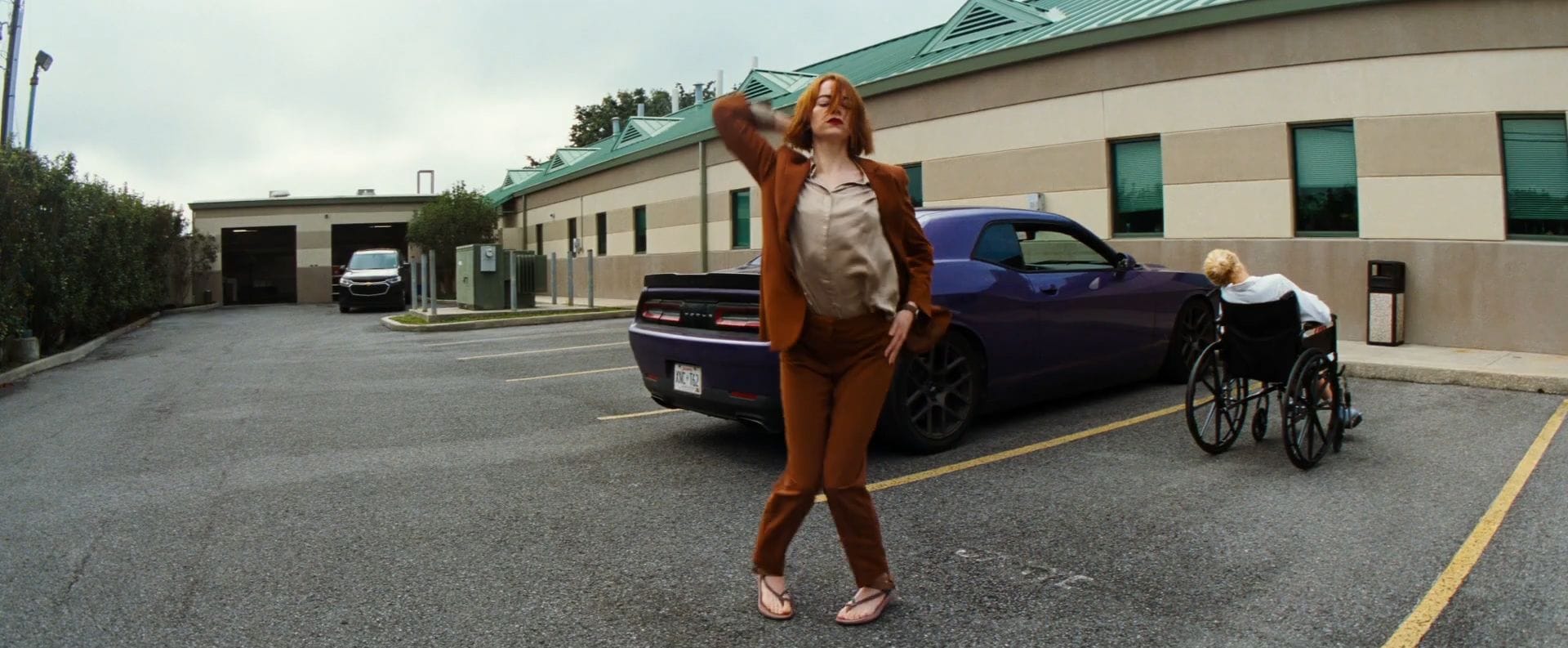
That will be important later, and not just because it’s a metaphor for how Emily’s life is out of control, and so she is constantly moving, constantly searching for the key to regaining that control, but at the same time, is moving so quickly and so desperately, that it's inevitable that she will eventually crash.
When Emily finds a woman named Rebecca, she becomes obsessed with proving Rebecca is the one. During all of this she’s also drawn back to the home she had left behind, where she accidentally bumps into her husband. He convinces her to have dinner, and then he drugs and rapes her. I assume this is to highlight why she left their life and joined a cult in the first place, but it's also a pretty shocking and sudden moment, narrative-wise. Whatever that shit was, when she returns to the cult, Andrew narcs her out as no longer being pure, the cult kicks her out, and in the end, no one gets what they wanted.
This last story seems to want to be about the complex relationship between faith and community, with the cult standing in for the larger organized belief systems. This makes sense, as the only real difference between cults and churches is the size of the congregation, and the idea here seems to be that while faith can provide a much needed sense of connection and community, it often comes at a cost of one’s own identity and personal relationships, of one's own personal ethics, and of one's own soul. This is something we see demostrated in the real world right now, as the rest of this country is continually betrayed time and time again by White American Christianity. This story clearly highlights this reality, giving us a metaphor not just for the extremes individuals will go to to “prove” their faith, and to “protect” their community, even if it comes at the expense of their own morality, but the danger that comes with blind devotion.
It's perhaps the most successful and complete of all three stories.
Because of this, I think, some folks will argue that this last film is also the one that ties everything together, that it reveals the connecting thread of a commentary on toxic external influences on a person, and the destruction of their autonomy. After all, the first film has an uber-controlling boss, the second has a person destroying themselves to please another, while the third film is all about destroying yourself to please an organization. I think it's fair to say that all three films could be said to be a statement on how we claim to fight against control, but more often than not, eagerly return to it, especially when the alternative is social disapproval and strife, and the loss of personal comfort, but I don't know if the films actually have all that much of substance to say on the matter.
So, while I don’t know if I’d say that the people who claim this are wrong exactly, I will say that you have to stretch to see it, and it helps if you're already very willing to accept that this was the interpretation that was intended, all while ignoring the fact that these films feel like three early first drafts that didn’t come together.
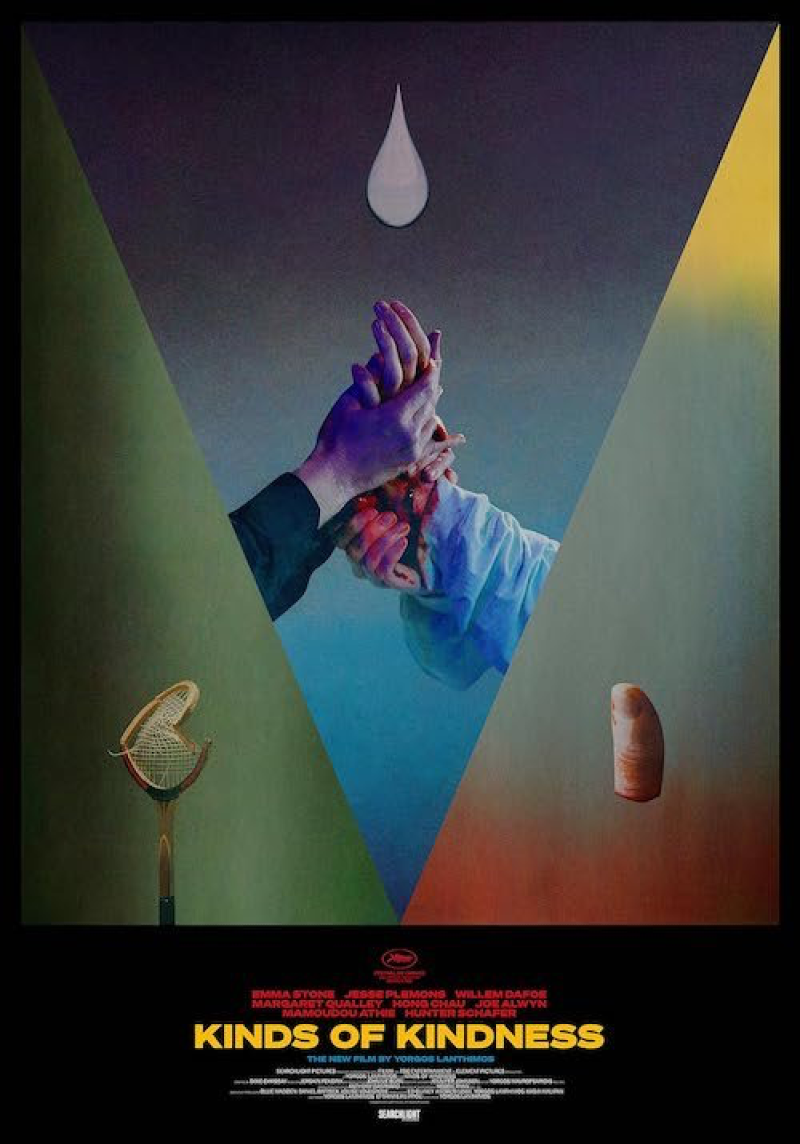
To me, Kinds of Kindness seems mostly like Yorgos Lanthimos trying to use his sudden Oscar-wrought mainstream cred to insert something audacious, unsettling, and provocative into the mainstream world, like "oooo, let's freak out the squares" but unfortunantly, this collection of vague musings on different types of control only feels half-baked.
Make no mistake, Kinds of Kindness practically overflows with ideas, with plenty to things to think and talk about, but it all still feels like nothing but a handful of cobbled-together first drafts that he wasn't able to flesh out to become a feature-length film. It's almost like they knew there was nothing there too, but they loved the ideas too much to set aside, so they gave up and crammed them together into a frustrating, unsatisfying, and nearly three-hour anthology. I mean, more power to them. Why not? Make your art, even if it's a failure, right? But still, to paraphrase Goldblum: “They were too concerned with whether or not they could make a film, instead of whether or not they should make a film.”
Still, the cast is amazing. Stone and Plemmons especially.
Kinds of Kindness is equal parts interesting, funny, and frustrating. But for a movie that is so focused on the idea of control, I can’t help but think that perhaps a little more control over the whole project on the part of the filmmakers would’ve been a good thing.
